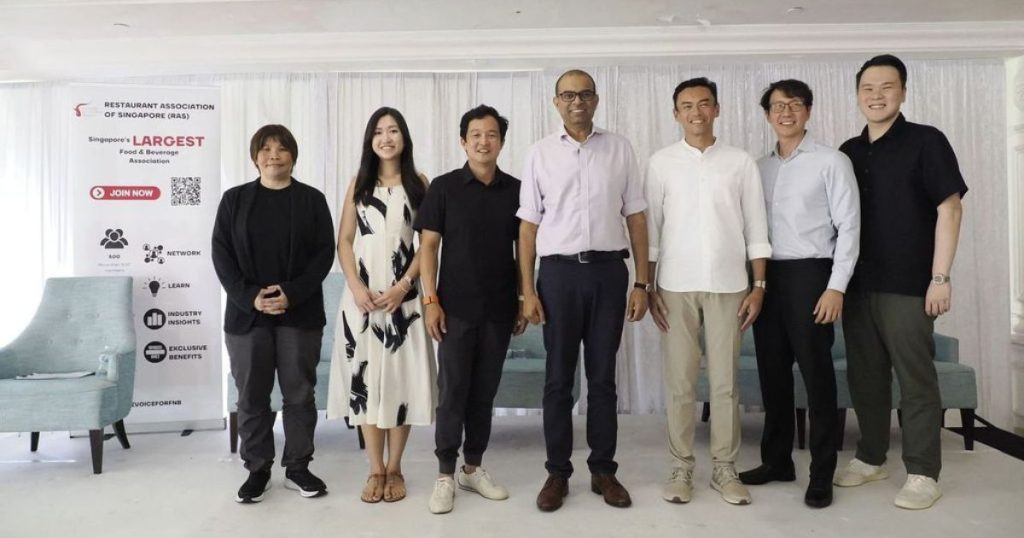Vikram Nair, Chairperson of the Government Parliamentary Committee (GPC) for Home Affairs and Law, said that the GPC will focus on current issues relating to Singapore’s internal security, which includes the war on drugs, for the current term of government.
In an interview with Petir, Mr Nair, Member of Parliament for Sembawang GRC, outlined his GPC’s focus areas, particularly highlighting concerns about etomidate-laced e-vaporisers (Kpods).
Having previously advocated for etomidate to be reclassified as a Class C drug, he is glad that the Ministry has moved quickly on this issue, and emphasised the urgency to “stamp out Kpods as soon as we can”.
The reclassification of etomidate under the Misuse of Drugs Act (MDA) comes in response to its increasing abuse through e-vaporisers.
Under the MDA, those found in illegal possession or using Class C drugs face up to 10 years’ imprisonment and a $20,000 fine. Drug trafficking offences carry similar jail terms plus five strokes of the cane.
These penalties are significantly higher than the previous maximum punishment under the Poisons Act, which imposed up to two years’ jail and a $10,000 fine.
Mr Nair said that the GPC will keep up to date on the drug situation and related penalties, including death penalty in Singapore.
He said that the GPC’s second priority will be to address concerns of foreign interference, particularly considering the recent high-profile hacking incident.
“At a more subtle level, we were concerned about the risk of foreign interference during elections. This is something the ministry should be focusing on.”
Road traffic-related offences constitute the third priority, Mr Nair explained, citing the series of serious accidents from last year. The Home Affairs Ministry plans to implement stricter rules in early 2026.
“We need to monitor how these new regulations unfold. While the GPC generally supports these measures, they will likely create additional challenges for professional drivers. We must find the right balance,” he said.
Vikram Nair: GPC will continue to push for S’pore to a hub for international legal services
The Law Ministry oversees the administration of justice, encompassing the courts, legal profession, and Attorney General’s Chambers (AGC), Mr Nair said. Since prosecution policies fall under AGC, there is a close connection with the Ministry of Home Affairs, which handles policing.
Drawing from his experience as a practicing lawyer, Mr Nair emphasised Singapore’s ongoing journey to become a hub for international legal services.
“As a GPC, we’ll also look at suggestions to continue on this journey and make sure that Singapore remains an important hub.”
He highlighted Singapore’s progress in becoming a centre for international dispute resolution and intellectual property over the past 15 to 20 years.
“This is not purely for the legal profession, it supports the larger development of Singapore, to attract investments, listings with the exchange,” he said. “Having our law more widely recognised and adopted, our dispute resolution processes used, gives us a higher international standing.”
Mr Nair said that managing the legal profession remains crucial for the administration of justice, despite its relatively small size.
“The ministry will intervene in matters concerning professional responsibility, which is one of our key focus areas,” he said. “I’m quite familiar with the legal profession, but also intend to engage others in different parts. When there is a need for the ministry to come in, that will be useful.”
On the challenges facing Singapore’ legal sector, Mr Nair pointed to the increasing global competition, and the need to maintain relevance.
“We were probably one of the early ones to set up an international commercial court, but other countries are following suit,” he noted. “In terms of the rule of law and its adoption in Singapore, we need to broaden [our approach].”
He highlighted the International Mediation Convention that Singapore initiated as an example of such efforts. For these initiatives to succeed, Mr Nair believes that “you need to get more countries to sign on” and “get the momentum” behind them.
Mr Nair noted that the Home Affairs and Law ministries have been active in drafting legislation, with the GPC being briefed and consulted before any bills are introduced.
Members then raise concerns at GPC meetings for the minster’s consideration, and file questions in Parliament as well.
“I find a lot of things are done more effectively in the meetings and you get the ministries on board,” Mr Nair said.
Looking ahead, Mr Nair indicated that he and his members would engage subject matter experts when needed. “This is something I’ll be discussing with my members and the ministry as well the best way forward,” he said.
| Vikram Nair advocates for the automation of the military and making sure that S’pore’s defences “keep up” As deputy chairperson of the Defence and Foreign Affairs GPC, Mr Nair said he will continue to advocate for the automation of the military and for the government to address declining manpower, and reduced training areas—issues he has consistently raised over the past decade. On foreign affairs, Mr Nair highlighted Singapore’s success in maintaining diplomatic relationships across nations. He has been asking questions relating to Singapore’s ties with major powers including China, the United States, and South Asian countries. |




